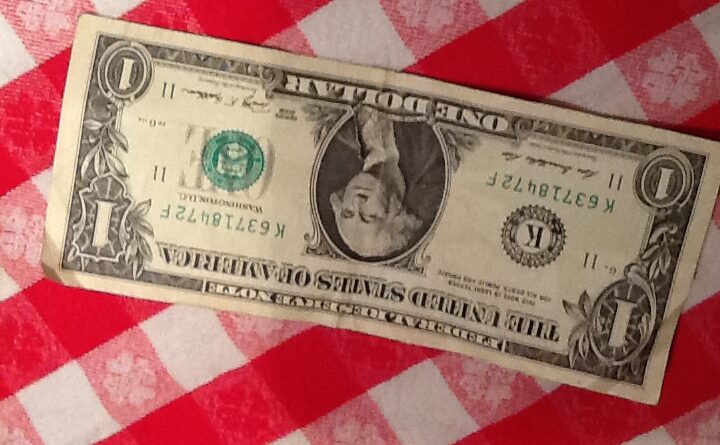America Can Be Great Again
By Maura Masters
If millions of dollars blew into my lap, I’d build a playground, or an orphanage, or a business that supports women. No question about it. I wouldn’t care if my money were taxed because the rich should be taxed, and deep down, we all know that to be true. There are only so many mountain ski homes and seaside luxury yachts the 1% can buy to support the economy. The rest is tucked away in off-shore accounts where wealth accumulates more wealth. Their money sits there, and sits there. How does that make anything great?
Billionaires like Warren Buffet and Bill Gates think that philanthropy is the answer. Seattle entrepreneur Nick Hanauer, co-founder of The True Patriot Network, “a progressive think tank espousing patriotic progressivism,” agrees. “The real problem with our economy is that we are concentrating wealth in the hands of people who aren’t spending or investing it, while starving working- and middle-class Americans are not of the ability to invest in themselves — not to mention sapping the consumer spending power that accounts for 70 percent of GDP,” he said.
These billionaires believe that the trickle down economic model is upside down. If you balance out the economy, it makes it better for everyone. We can’t have all the money at the top; we will have a revolution. You have to fortify the base, bridge the fear and greed of the wealthy, so average teachers, cops, nurses and fire-fighters are safe to spend again — contributing to their communities and this country.
There is no proof, according to Hanauer, that tax cuts have ever helped the working- and middle-class. “There is simply no empirical evidence nor plausible economic mechanism to support the claim that cutting top tax rates spurs economic growth. When President Bill Clinton hiked taxes, the economy boomed. When President George W. Bush slashed taxes, the economy ultimately collapsed. It wasn’t until after most of the Bush tax cuts expired during the Obama administration that the post-Great Recession recovery started to pick up steam — an ongoing recovery that, as uneven as it has been, has grown into one of the longest economic expansions in U.S. history.” In other words, history has shown that giving a tax cut to the rich benefits nobody but the rich.
The wealthy didn’t always hoard their cash. After WWII the rich were taxed 94 percent of their income to rebuild the country. (In April 1942, just a few short months after the attack on Pearl Harbor, President Roosevelt proposed a 100 percent top tax rate. At a time of “grave national danger,” he argued, “no American citizen ought to have a net income, after he has paid his taxes, of more than $25,000 a year” — that’s roughly $300,000 in today’s dollars). And nobody cared. It was their duty. Why make all this money if you couldn’t help your fellow citizens with it? The Fords, Rockefellers, Gettys and especially Carnegies, spent their fortunes to build infrastructure and jobs. Sure, they made more money doing it, but they also bolstered the less fortunate, created legacy, and made America some might say, (besides bigotry and sexism) the best country in the world.
It was real trickle down economics. The wealth did flow down to the communities and the people who needed it. Who, in turn, went shopping — buying houses and cars, investing in education and local business, and supporting the homeless, wounded and illiterate. They supported the arts, culture and promise. President Reagan’s definition, still flouted today by members of the elite, and recently adopted by the GOPs tax plan (cuts) for the rich, is a lie.
The third generation of wealthy — the great, great grandchildren of the industry barons — don’t have any moral idea what to do with their money. They buy broken down Jeeps, $6,000 bikes and move to Aspen where they contribute zero to the economy besides consuming services and privilege. Worse are the nouveau riche who are so terrified that someone is going to burgle their ill-won gains that they hide it away from the maids, gardeners and personal chefs who tend to their every new desire. Stories in Aspen abound from earnest laborers being told by soulless customers to “go ahead and sue me” when they don’t pay their bills. They are not the neighbors you want shoring up your back.
As actor Jeff Daniels (as his character Will McAvoy) LINK https://m.youtube.com/watch?v=ZPHSXUS0_1c said, “America is not the best country in the world anymore,” but it used to be. It used to be that we waged war on poverty not the poor. David Brooks at the New York Times also noted that it wasn’t always that the wealthy only behaved in their own best interest. He said in the early 1900s men and women acted to help each other, and that action sometimes came before their own comfort or safety. “When you look back at that era, you are struck by how many civic institutions were founded to address the nation’s problems,” Brooks said. Those men and women were civic heroes. Brooks continues, “Not only the Forest Service, but also the Food and Drug Administration, the municipal reform movement, the suffrage movement, the Federal Reserve System, the Boy Scouts, the 4-H clubs, the settlement house movement, the compulsory schooling movement, and on and on.”
Today, our faces aglow in the latest electronic gadget, we neglect our closest neighbors, let alone the global population. Members of the working- and middle-class consistently contribute to their church collection box; giving what they can to support those less fortunate. Why is it that today the wealthy need a crowbar to open their hearts and thick wallets? Do the wealthy have to be “progressive” to care about their fellow man? Do they not understand that by sharing their wealth America will be great again?
Trickle down economics does not work, but building up families and communities does work. Liberal billionaire Hanauer says that if he were Benevolent Dictator, the rich should be taxed. “I would substantially raise taxes on myself and my wealthy friends. Why? It is the only way to sustainably grow the economy, boost productivity, increase business opportunities, and create more and better jobs,” he said.
Maura Masters coordinates marches for Alice because, although not wealthy, she does what she can to let the people of her community know that she loves and supports them.

